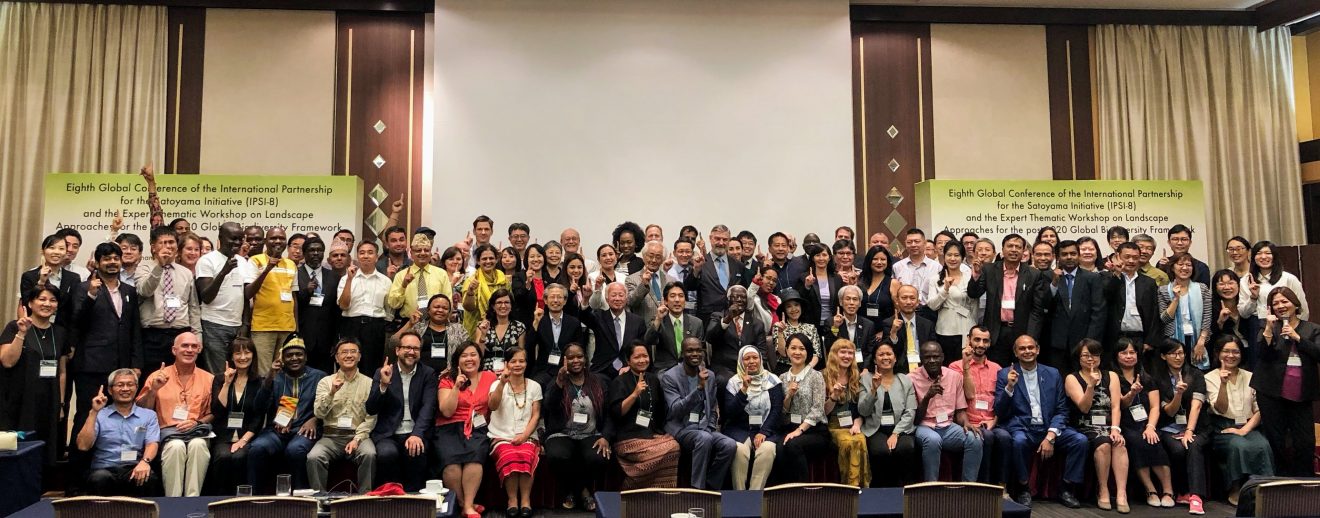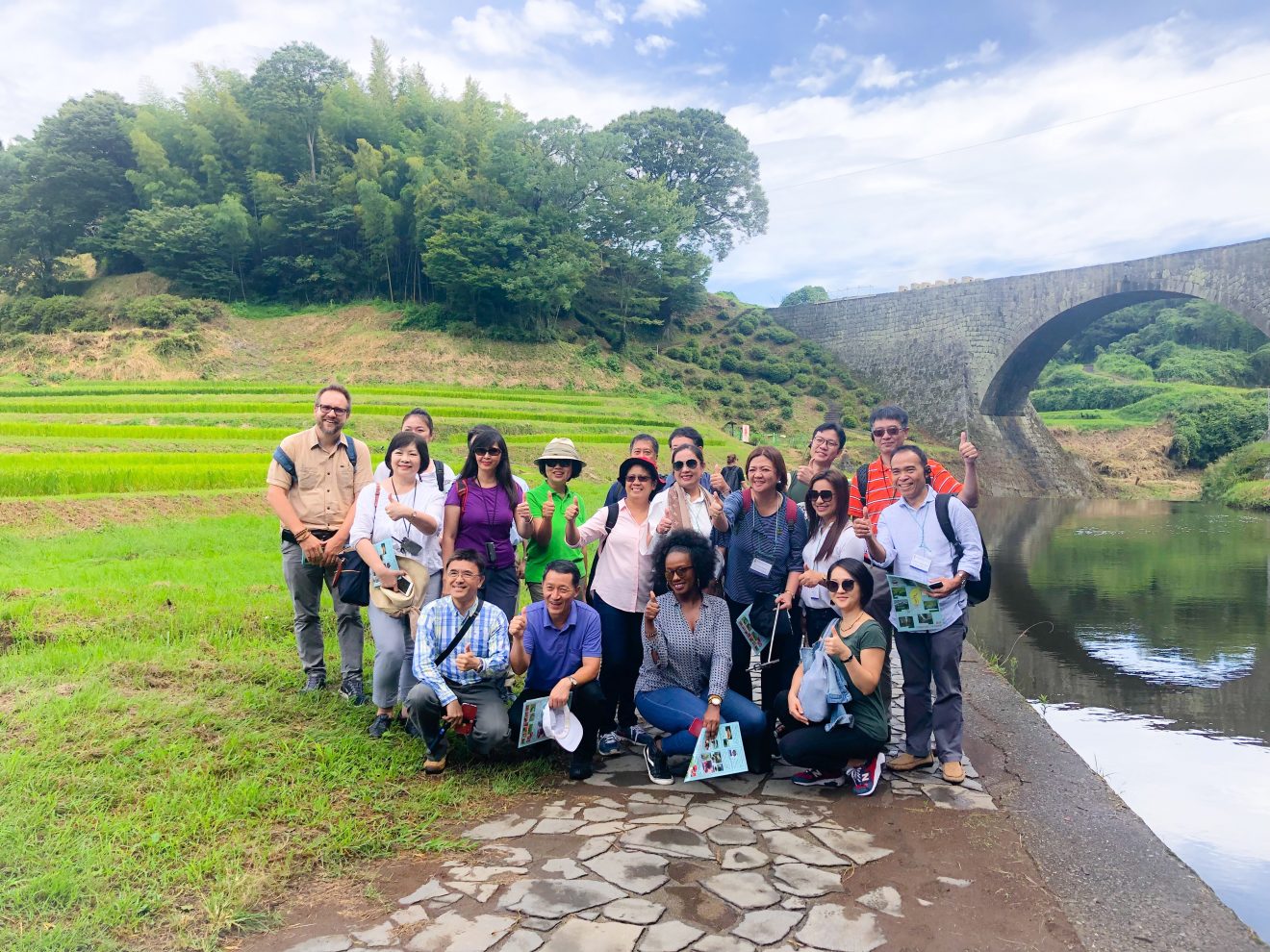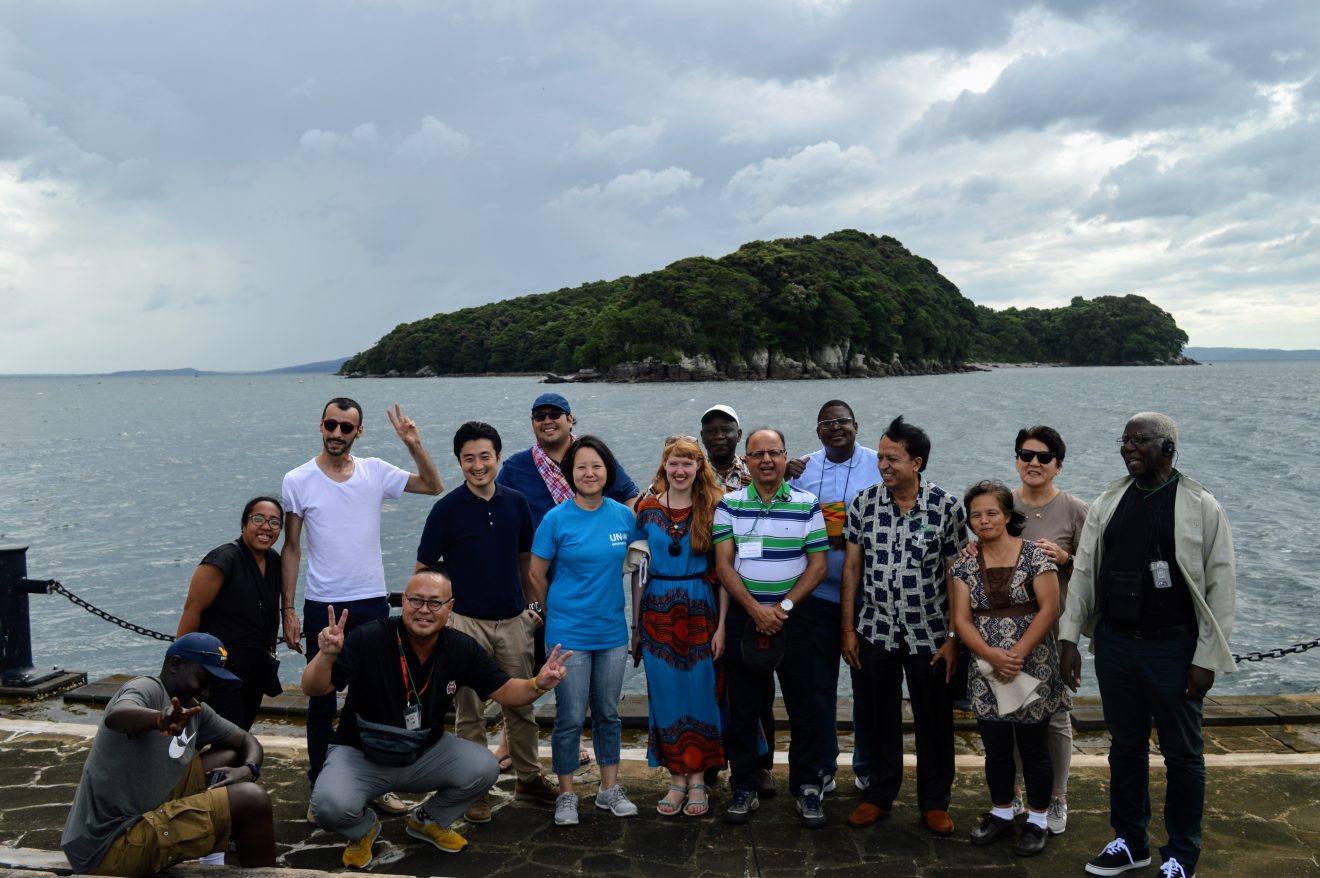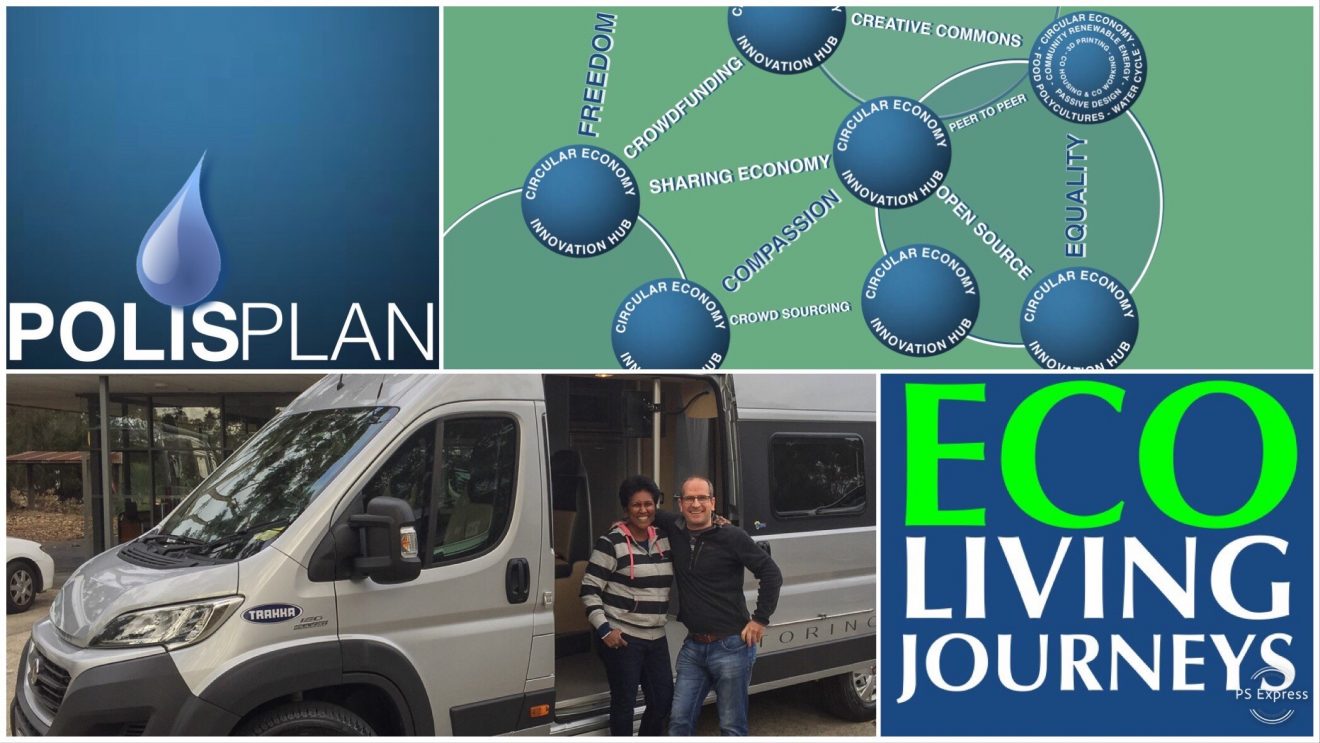|
|
| Dear IPSI members and friends, |
| Greetings from the IPSI Secretariat in Tokyo, Japan. IPSI and its members continue to stay active in a wide variety of projects and activities related to maintaining and revitalizing socio-ecological production landscapes and seascapes (SEPLS). |
| This month’s newsletter contains reports from the recent events held in Kumamoto, Japan, including IPSI-8, an Expert Thematic Workshop on Landscape Approaches for the Post-2020 Global Biodiversity Framework, and the IPSI Steering Committee meeting, where five new members were welcomed to IPSI and one new collaborative activity was endorsed. IPSI-8 also saw the rotation of the membership of the IPSI Steering Committee, and we hope all readers will join us in thanking the departing members for their years of service, and welcoming the new members. We are also happy to introduce one of IPSI's newer members, PolisPlan from Australia. |
As always, we hope you will contact us to submit any new case studies or other information about your activities, or if you have any questions or comments.
IPSI Secretariat |
|
|
|
|
|
|
|
 |
Expert Thematic Workshop on Landscape Approaches for the Post-2020 Global Biodiversity Framework
| A workshop was held 3-6 September 2019 in Kumamoto, Japan, with the intention of contributing to the development of the Post-2020 Global Biodiversity Framework and producing recommendations for the inclusion of a landscape perspective in future biodiversity policy. The workshop was organized by the IPSI Secretariat at UNU-IAS in cooperation with the Secretariat of the Convention on Biological Diversity, the Ministry of the Environment of Japan, and the Kumamoto Prefectural Government. It was held in conjunction with the Eighth IPSI Global Conference (IPSI-8; see below). |
| As many readers are aware, the end of the United Nations Decade on Biodiversity 2011-2020, along with the Convention on Biological Diversity's Strategic Plan for Biodiversity 2011-2020 with its Aichi Biodiversity Targets, is fast approaching, and policymakers have begun the process of planning for a new Post-2020 Global Biodiversity Framework. CBD COP 14 produced a Decision adopting a process that would include a series of regional and thematic consultations and similar events, plus an open-ended working group, to develop the framework. This Expert Thematic Workshop was one of these events, and was envisioned as a part of this ongoing process, with its outputs to feed into subsequent events and eventually the framework itself. |
| Participants included all of the attendees of IPSI-8, plus a number of invited experts from CBD Party governments and invited experts identified for their particular expertise. Participants engaged in a series of wide-ranging discussions on a number of themes related to landscape approaches, and generated many recommendations for ways for landscape approaches to contribute to biodiversity policy beyond 2020. As part of the workshop, a joint Public Forum was held with IPSI-8, titled "Socio-ecological Production Landscapes and Seascapes for Biodiversity Conservation". |
| A report of the workshop is now being developed, and comments and feedback are actively pursued by the organizers from all participants and others who may have any suggestions to make it more effective. Any readers who have not already been contacted about this process, please contact the IPSI Secretariat if you would like to take part in developing this report. |
| For more information, please see the IPSI website here. |
|
|
|
|
|
|
|
The Eighth IPSI Global Conference (IPSI-8)
| The Eighth IPSI Global Conference (IPSI-8) was recently held in Kumamoto, Japan. This year, IPSI-8 was held in conjunction with the Expert Thematic Workshop on Landscape Approaches for the Post-2020 Global Biodiversity Framework (see above). |
| The Conference consisted of the Fourteenth Meeting of the IPSI Steering Committee, a meeting of the IPSI General Assembly, the Public Forum that was held as a joint event with the Expert Thematic Workshop, and an excursion for participants hosted by the Kumamoto Prefectural Government. |
| The General Assembly is primarily for information-sharing and decisions regarding the future direction of IPSI, and is open to all IPSI members. The agenda this time also included the rotation of the members of the IPSI Steering Committee. |
| The excursion on 6 September gave participants a chance to see a number of sites in the Aso, Minamata, and surrounding areas. Aso is a volcanic mountainous area with a number of traditional production activities particularly centering around its grasslands, which are recognized under the FAO's Globally Important Agricultural Heritage Systems (GIAHS) programme, and are good examples of SEPLS in Japan, particularly satoyama landscapes. Minamata is a coastal region where local groups are working towards sustainable fisheries management with a satoumi seascapes perspective, and is where the Minamata Convention on Mercury was adopted in 2013. |
| We at the Secretariat would like to once again thank all of the participants, and especially our co-organizers at the CBD Secretariat, the Ministry of the Environment of Japan, and the Kumamoto Prefectural Government, who also hosted a wonderful reception with many local delicacies. It is thanks to all of your help and support that the Global Conference was such a success. |
| A full report of IPSI-8 will be made available in the near future. In the meantime, more information can be found on the IPSI website here. |
|
 |
 |
|
|
|
|
|
|
IPSI Welcomes Five New Members
| We are pleased to announce that at its fourteenth meeting in September 2019, the IPSI Steering Committee confirmed five new member organizations, bringing IPSI’s total membership to 258 organizations. It is therefore our pleasure to welcome: |
| • Caraga State University - Center for Research in Environmental Management and Eco-governance (CRÈME) (Academic, educational and/or research institute, Philippines) |
| • Clarendon Parish Development Committee Benevolent Society (Non-governmental or civil society organization, Jamaica) |
| • Environment Protection Authority (EPA), Yemen (National Governmental Organization, Yemen) |
| • Environmental Protection and Conservation Organisation (EPCO) (Non-governmental or civil society organization, Republic of Mauritius) |
| • Swedish Biodiversity Centre (Swedish University of Agricultural Sciences) (Academic, educational and/or research institute, Sweden) |
| The new members, in addition to being involved in valuable projects in their own right, also help to increase IPSI’s strength by expanding our representation in that four of the five are from countries previously not represented in IPSI. We look forward to collaborating closely with all of them in promoting the concept of the Satoyama Initiative in the future. |
|
|
|
|
|
|
|
New IPSI Collaborative Activity Endorsed
| IPSI Collaborative Activities are activities carried out by at least two IPSI members (possibly in collaboration with other organizations), and approved as such by the IPSI Steering Committee. At its meeting this month, the IPSI Steering Committee approved the proposal for one new IPSI Collaborative Activity, bringing the total number of IPSI Collaborative Activities to 48. |
- Livelihood Enhancement and Institution Building for Natural Resource Management on the Weto Landscape – by IPSI members Greenglobe Ghana and Accelerated Rural Development Organization (ARDO), along with University of Cape Coast (Faculty of Agricultural Economics and Extension), Volta Region Beekeepers Association (VORAB), Forestry Commission, Ghana National Fire and Rescue Services, and the Ministry of Food and Agriculture of Ghana
| IPSI members are encouraged to propose any activities carried out in collaboration with other members as IPSI Collaborative Activities. This is a great opportunity to gain more attention for your activities and to improve IPSI’s functioning as a partnership, as well as to improve SEPLS management through knowledge sharing. Please contact the IPSI Secretariat if you have any activities that may be potential IPSI Collaborative Activities. |
|
|
|
|
|
|
|
IPSI Steering Committee Membership Rotation
| The IPSI Steering Committee is made up of 11 to 22 IPSI members, who are selected by the IPSI General Assembly to serve for two terms of the General Assembly. Steering Committee membership rotation was on the agenda for the IPSI-8 General Assembly meeting in September 2019, and it was determined that the next term of the Steering Committee will include the following members: |
- Ghana National Biodiversity Committee (Chair)
- Association for the Agroindustry Development in Camana (APAIC)
- Conservation International
- Conservation Solutions Afrika
- Forest Peoples Programme
- Institute for Global Environmental Strategies (IGES)
- Kathmandu Forestry College (KAFCOL)
- Marine Ecosystems Protected Areas (MEPA) Trust
- Ministry of Environment, Cambodia
- Ministry of the Environment, Japan
- Nature and Livelihoods
- Platform for Agrobiodiversity Research (PAR)
- Sabah Biodiversity Centre, Natural Resources Office Sabah, Malaysia
- Secretariat of the Convention on Biological Diversity (SCBD)
- United Nations Development Programme (UNDP)
- United Nations University (UNU)
- University of Georgia Neotropical Montology Collaboratory
- University of Sarajevo Faculty of Science
| We at the Secretariat would like to extend our sincere thanks to nine organizations who are stepping down from the Steering Committee at this time, namely Asociación ANDES; Bioversity International; the International Tropical Timber Organization (ITTO); Kenya Wetlands Biodiversity Research Team (KENWEB); Live & Learn Environmental Education; M.S. Swaminathan Research Foundation (MSSRF); Ministry of Forests and Soil Conservation, Nepal; the Secretariat of the Global Environment Facility (GEF); Ministry of Environment, Cambodia; Nature and Livelihoods; and the Secretariat of the Pacific Regional Environment Programme (SPREP). All of these organizations have given much hard work on behalf of IPSI during their time on the Steering Committee, and we look forward to continuing our collaboration with them in other ways in the future. |
|
|
|
|
|
|
|
 |
New Member Introduction: PolisPlan
| PolisPlan is a mobile town planning and strategic engineering consultancy based in Australia. Its vision is to develop a network of high-tech, resort-style, regenerative villages. Each village is to be designed for up to 200 people and will integrate co-working and co-living spaces with water and energy micro-grids and a regenerative agricultural food system. The regenerative village design will be based on the principles of the Circular Economy, striving towards zero waste and one-planet living and focusing on the nexus between food, water, energy and the built environment to maximise efficiency. Villages will be designed for a discrete population based on the capacity of the local natural environment. Scale will be achieved by replicating rather than increasing on size. The first objective is to work with local governments to create a strategic planning framework for this development approach. They are collaborating with various researchers, community groups and other consultants as they work towards building a pilot project. |
| For more information, please see their website here. |
|
|
|
|
|
|
|
Contact
| Please be sure to let the Secretariat know if there are any changes in your e-mail address or contact information. |
Secretariat of the International Partnership for the Satoyama Initiative
5–53–70 Jingumae
Shibuya-ku, Tokyo 150-8925
Japan |
Tel: +81 3-5467-1212
Fax: +81 3-3499-2828 |
| If you have been forwarded this newsletter and would like to SUBSCRIBE, you can do so on the IPSI website here. |
|
|
|
|
|
|
|

